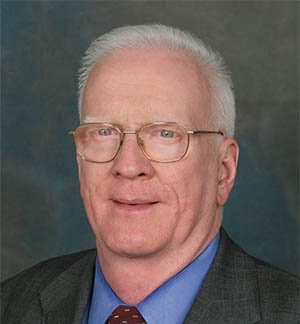
Dr. Bonner Cohen
National Center for Public Policy Research
Several hundred Israeli companies are developing food technology solutions in view of the unfolding food crisis. That is good because farmers, especially small farmers, are under siege. Consumers worldwide are feeling the pain too. Given the unavailability of food staples and skyrocketing prices of essential food, weekly visits to the supermarket have turned into traumatic events.
Dr. Bonner concentrates on energy, natural resources, and international relations at the National Center for Public Policy Research, where he serves as a Senior Fellow. He also serves as a senior policy adviser with the Heartland Institute, senior policy analyst with the Committee for a Constructive Tomorrow, and as adjunct scholar at the Competitive Enterprise Institute.
TOPIC:
INDUSTRY:
AFFILIATION:
Speaker 2 10:43
Ok, so the the scarcity of products on this shelf really should not be much of a function of the pandemic causing a slowdown in work at food assembly operations?
Speaker 1 10:58
No, no, not, no. Certainly not again in the first few months, yes, but not now.
Speaker 2 11:03
Ok, so another thing that the Biden administration has blamed on. Lack of food and higher prices of food is the Russians invasion of of Ukraine. And you know definitely everyone would agree it’s terrible thing, a terrible thing for one country to invade another for no reason. And you know there’s a lot of misery and death and that’s a horrible thing. As far as the production of food though, I believe the Ukraine accounted for 11 or 13 % of the world’s caloric consumption. But how much food is how much grain and wheat? It’s actually coming out of Ukraine now and and Russia now.
Speaker 1 11:41
Now that there is an agreement in place to allow green to go from Ukraine, across the Black Sea, through the Bosporus and into the Mediterranean, being overseen primarily by Turkey. This is not as big a thing as it was a few months ago. Now I would point out that that agreement is a is a very tenuous thing. It is subject to the ups and downs of the military conflict going on there. There were very legitimate concerns that a lack of grain transport from Ukraine to places such as North Africa and the Middle East would have very dire consequences. Uh, that’s why measures were taken, and the Russians and the Ukrainians and the mediated by the Turks and to a lesser extent the UN or were able to reach an agreement. I would simply point out it’s on shaky ground and it is subject to whatever goes on in the military conflict.
Speaker 2 12:50
Do we know what % of of foodstuffs are coming out of the Ukraine now compared to before the war?
Speaker 1 12:58
We have not. Yet reached the levels of the pre February twenty fourth twenty twenty, two levels they have ticked up. I don’t know the percentage of off hand I and you have to be very careful with it particularly during wartime to believe any figures that that you get. But there has been a marginal improvement certainly from from where we were several months ago. But again stay tuned because the whole the situation there. Is still very, very uncertain right uh, they’re saying war, the first casualty is is the truth. So, um, Russia itself is also a big producer of of harvest and grains and wheats and and so forth. Are there boycotts on on Russian crops or are they are they shipping out as much as?
Speaker 1 13:55
They yeah, the Russian crops, Russia. Most people don’t know this. Russia is the world’s largest exporter of wheat, and as much as we see sanctions being put on other Russian products, particularly its oil, with China and India and Iran making up for some of that. But not yet. On weed, there is a a recognition on the part of people who purchase wheat from Russia that they need to feed their population. So we haven’t seen that yet.
Speaker 2 14:31
Ok, um, so. We we really can’t blame the pandemic for the food shortages really can’t blame the situation and and the the Ukraine that much you know maybe somewhat but but but but not not to a huge extent you know it seems that there are people that have a political ideology to take policies that they know will. Restrict the production of food and harvests and and livestock and so on. So maybe we can talk about that. You know these these these progressive people that have all these policies this in climate change you know theory that they subscribe to you know they don’t want any more fertilizer and you know they want any more natural gas produced. And natural gas is needed for fertilizer and fertilizer is needed for for growing crops and crops are needed to feed animals and people. And so forth. So anyway, maybe you can tell us your overview of that then I can ask.
 Solution Nation
Solution Nation